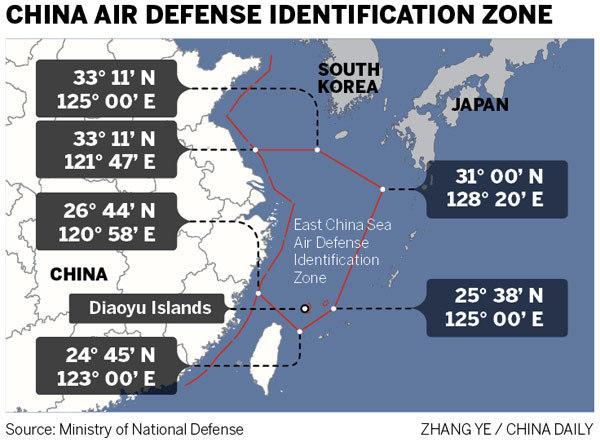
Two "unarmed" US B-52 bombers, on a "long-planned" "training mission", made an "over-flight" through China's East China Sea Air Defense Identification Zone on Tuesday, according to the Pentagon.

On one hand, the White House and Pentagon have been trying to give the impression that they do not want to be overly provocative. On the other hand, they were anxious to send a message to intimidate.
That the Chinese military did not respond with defensive emergency measures may in part be because it is too accustomed to similar US military aircraft approaches in the same airspace to make a fuss. But, more importantly, it is an outcome of the country's consistent policy of avoiding avoidable conflicts.
Beijing does not lack the "caution and restraint" US Secretary of State John Kerry appealed for the other day. Unless Tokyo demonstrates the same degree of caution and restraint, however, there is no guarantee the United States will not be dragged into something it does not want.
Washington has been claiming that it does not take sides in the dispute over China's Diaoyu Islands. But the over-flight of B-52s belies the truth of this.
Although it was the Abe administration's "nationalization" of some of the islets that changed the previous status quo of the disputed islands, Washington is wrongly accusing China of changing it. China's air defense identification zone is a legitimate response to and a natural product of Japan's unilateral move over the islets and the subsequently redefined "status quo".
Washington is implying Beijing does not want to resolve the dispute diplomatically, knowing full well that Beijing always favors diplomacy. The Chinese approach to territorial disputes has always been the proposal to shelf them.
If the Abe administration continues to deny even the existence of a dispute over Diaoyu Islands, who is Beijing supposed to talk with?
The current mess is a result of Tokyo's brinkmanship, and Washington's "message" will only add fuel to Tokyo's dangerous belligerence and further eliminate room for diplomatic maneuvers.
More importantly, it may put China and the US on a collision course. Which will prove much more hazardous than sending military aircraft to play chicken in the air.
Copyright ©1999-2018
Chinanews.com. All rights reserved.
Reproduction in whole or in part without permission is prohibited.